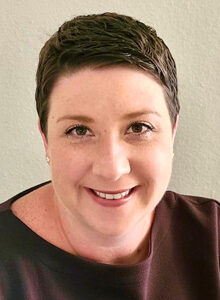Roughly 14% of adults over age 60 (WHO, 2023) live with a mental health condition. As the geriatric population continues to grow (Urban Institute, n.d.), so do its rates of mental distress, depression, and drug deaths (Wilson, 2024). The behavioral health industry must prepare for treating more older American adults with mental health issues, especially those with chronic comorbidities like diabetes, cancer, heart disease, and COPD, who often need a higher level of care.

Providing behavioral health care to older adults with complex health conditions presents a number of challenges for clinicians, including identifying the correct diagnosis and treating mental health issues in a way that doesn’t negatively impact other care a patient might be receiving. The industry must adjust its approach to assessments, treatment pathways, bedside manner, medications, and more to properly support this population.
In our work treating complex older adults across hospital, community, and home care settings, we’ve identified a number of techniques that help us better connect with and treat patients.
Separate Mental Health From Physical Health Symptoms
There are a number of medical conditions with symptoms that present similarly to mental health conditions. For example, an untreated urinary tract infection (UTI) can lead to episodes of delirium. Seeing delirium symptoms, a behavioral health professional might recommend a certain type of care when the best course of action is simply treating the UTI. Dementia and Alzheimer’s may present similarly to schizophrenia but require completely different treatment pathways.
Before launching a therapy program or prescribing psychiatric drugs, clinicians must first rule out any medical issues causing distress. That way, a mental health professional is not treating an issue that doesn’t actually exist. That means utilizing information from lab tests, which can illuminate an individual’s physical health complexities in ways a therapist or psychiatrist cannot see during their assessments. Medical comorbid complexity makes accurate diagnosis a challenge, but having access to patient medical records and care team collaboration speeds the process and ensures all stakeholders are aligned.
Move Beyond the Diagnosis
Correctly diagnosing a mental health issue in a complex older adult is just the first step. Once their physiological issues are identified and addressed, mental health clinicians should begin treating their mental health symptoms. To mitigate potential issues, including side effects caused by contraindicated medications, it’s imperative to involve the entire care team, sharing any setbacks or improvements along the way.
In the best-case scenario, getting a complex older adult to a point where all of their issues, both physical and mental, are being treated can take months. However, finding the right balance when treating every comorbidity and mental health condition can also last for the rest of the patient’s life, requiring constant adjustments based on lab data, mental health assessments, and more. Clinicians must expect the unexpected and be prepared to get creative with the entire care team to address as many conditions as possible to improve a patient’s overall wellbeing.
Understand How Past Events Might Cause Current Behavior
It’s not just grief, isolation, loneliness, and substance use disorder that can spark behavioral health changes in older adults. Past trauma is also a significant factor, and issues stemming from either recent or early childhood events can have reverberating effects on someone’s current mental state, especially if that trauma has not been resolved.
Adults aged 75 and older have the highest suicide rates in the country (American Foundation for Suicide Prevention, 2024). By uncovering past trauma, clinicians can better treat the root cause of present-day issues, customizing treatment in hopes of making a lasting impact on patients. It’s also the first step towards decreasing the likelihood of self-harm.
Rely on Family and Friends for Additional Context and Support
While a medical team working together can help diagnose a patient, friends, and family are a foundational part of that care team. They’re doing most of the day-to-day work and have background information that a patient may have forgotten. They can also share their observations about behavioral changes and any relevant insights about the patient.
For example, someone suffering from dementia or Alzheimer’s may not remember certain relevant details, but a friend or family member can fill in the clinician. Someone with diabetes and depression can be lethargic and lack motivation, but those symptoms are similar for those who don’t take their insulin or their antidepressants. A caretaker may be able to shine a light on what is actually happening, especially if medication is not taken regularly. Involving the patient’s support system is necessary for effective care and can be invaluable for arriving at an accurate diagnosis and deploying the correct treatment.
Complex older adults deserve high-quality treatment just like the rest of us. With a little advanced preparation and an open mind, mental health clinicians, no matter their professional focus, can be a lifeline to these individuals, who greatly benefit from customized care in the later stages of their lives.
Marlene McDermott, LMFT, PhD, is Vice President of Therapy and Quality Services, and Jennifer Comerford is Vice President of Clinical Operations and Product Development at Array Behavioral Care. Array Behavioral Care is the nation’s leading virtual psychiatry and therapy practice. To learn more about accessible, comprehensive behavioral health care, visit www.arraybc.com or reach out to care@arraybc.com.
References
American Foundation for Suicide Prevention. (2024, May 11). Suicide statistics. afsp.org/suicide-statistics/
Becker’s Behavioral Health. www.beckersbehavioralhealth.com/behavioral-health-mental-health/mental-distress-depression-drug-deaths-increasing-among-older-adults.html
Urban Institute. (n.d.). The US Population Is Aging. www.urban.org/policy-centers/cross-center-initiatives/program-retirement-policy/projects/data-warehouse/what-future-holds/us-population-aging
Wilson, R. (2024, June 7). Mental distress, depression, drug deaths increasing among older adults.
World Health Organization (WHO). (2023, October 20). Mental health of older adults. www.who.int/news-room/fact-sheets/detail/mental-health-of-older-adults





